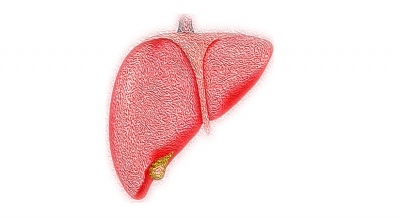By Mohammed Shafeeq
Hyderabad: On the eve of the World Liver Day, being observed amid the coronavirus pandemic, medical experts have warned that excessive liquor consumption weakens the immune system, making one more vulnerable to infections like Covid-19.
A substance called ethanol or ethyl alcohol present in alcoholic beverages harms the immune system of an individual. Other toxic substances that smell like ethanol are also added to adulterated beverages.
Ethyl alcohol is also one of the key ingredients to prepare hand disinfectants that are in high demand in the wake of the Covid-19 pandemic.
“Social media is filled with memes and messages around consumption of alcohol to kill viruses inside a human body, but the fact remains that consuming alcohol will increase the risk of contracting infections,” said Santosh Kumar Enaganti, Senior Consultant Medical Gastroenterologist and Hepatologist at Continental Hospitals.
“Liver is a sensitive yet vital organ and there are numerous risks like jaundice, cirrhosis, liver failure, liver cancer etc. caused due to heavy consumption of alcohol. In fact, binge-indulgence with alcohol results in significant bodily impairment. Hence, it is best advised to stay away from alcohol, avoid risks, at least during these times when a pandemic is knocking on the doors,” he said.
Alcohol and smoking are associated with the dangerous progression of Covid-19. Those with existing liver disease and those above 60 years of age should be extra careful as these patients are more likely to have adverse outcomes if they contract Covid-19.
According to Sudheer Vinnamala, Consultant Gastroenterologist, Hepatologist and Therapeutic Endoscopist at KIMS Hospitals, Kondapur, liver diseases can result from several causes such as alcohol, viral infections (hepatitis B, hepatitis C), autoimmune drug/ medications etc.
“Every year about 10 lakh patients are newly diagnosed with liver cirrhosis around the world. Recent World Health Organization data shows liver disease related deaths in India has reached 259,749 per year that is A2.95% of total deaths,” said Vinnamala.
Liver disease ranges from mild spectrum of self-limiting illness due to infection or fat deposition in liver to the severe form with cirrhosis, acute or chronic liver failure requiring transplantation.
With advancing age and increasing epidemic of obesity, more and more people are now developing obesity related liver disease called NASH or Non-Alcoholic Steatohepatitis.
He pointed out that there is a shift from traditional infection related liver disease to the 21st century causes like weight gain, decreasing exercise, increased alcohol consumption, increased incidence of diabetes and longer life expectancy leading to advanced liver disease in patients with multiple other comorbidities.
According to Vinnamala, people with suppressed immune systems due to immunosuppressive medication, over 60 years of age, people with other comorbidities such as diabetes, hypertension, heart disease or as a component of other illnesses are at elevated risk of both contracting COVID infection and having a more severe disease.
While most patients with mild liver disease do not require any additional precautions other than social distancing and general safety measures, people with cirrhosis or those taking immunosuppressive medications such as steroids, and patients awaiting liver transplant or already those who have received one are at high risk of developing a severe form of disease if they are infected with coronavirus.
–IANS


















